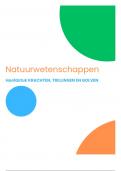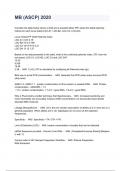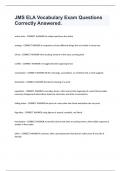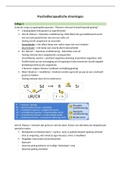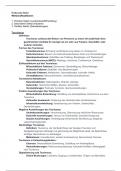,UNIT 5 task 1
By Megan Royle , Cheryl Hall
Introduction: In this assignment I will be discussing the importance of meeting individuals' care and support needs
and how to meet them by being aware and understanding of the diversity of the public and how to care in an equal
manner. It will include a clear description of the protected characteristics and why each one can influence or increase,
the chances of being decimated against. I’m going to include how an ethical approach to certain situations can improve
your duty of care. I will be discussing why having different personal attributes or in other words interpersonal skills can be
necessary when caring for people with various needs.
Case study 1
Alice Fernandez
What’s the case study about?
Alice is a seventy-four-year-old woman who has lost her husband to liver cancer. She is an alcoholic which has
influenced her to spend her pension money on this habit. Moreover, she has begun taking antidepressants soon
after her husband passed away, and her alcohol intake has also increased due to her loss. However, the
antidepressant is appearing to make her lethargic. Alice attends aerobics for over sixty-fives at a centre, the
manager has noticed the strong smell of alcohol Alice wears and has discussed her habit with her as this smell
causes distress to the other class members and the trainer. The people who attend the class with Alice have in
consideration suggested that maybe she visits the local meeting for alcoholics rather than attending the
aerobics session; however Alice refused this idea unless she gets to also attend aerobics. The manager is
cautious when talking to Alice to not discriminate against her; however he had to act to ensure the attendees of
the aerobics class are happy. He suggests that Alice may attend but must stand away from the other individuals.
The manager is also concerned about the effects of the anti-depressants on Alice and advises her to go and visit
, her GP, Alice says that she feels her GP does not understand her needs, due to finding personal expression
difficult, the manager offered and has agreed with Alice to accompany her on her next visit in order to support
her in expressing her concerns and needs. The manager suspects that her recent increase of alcohol intake is
due to her recent loss. Alice has been persuaded to meet with a bereavement counsellor who can support her.
She will be expected to go to sessions at the centre to reduce her need for medication and could possibly
benefit her in her drinking habits. After Alice visited the GP with the manager, an appointment with a nutritionist
was arranged to support Alice in eating healthier. The GP took some blood samples to measure her liver
function, her liver is most likely damaged as a result of her Alcohol problem. They found they were a cause for
concern, Alice was then referred to a specialist consultant at the nearest NHS trust. The GP has studied Alice’s
medications after receiving feedback from the accommodation manager on her previous visit. The GP has
suggested that Alice may well benefit from sheltered accommodation, where she would receive support, Alice
has agreed to meet a representative from the local housing association, but Alice wanted the support of the
centre manager, however this was not possible due to other demands on the manager’s time. Therefore her GP
has arranged for a volunteer advocate to support Alice, who will visit her home before the meeting with the
housing association representative to discuss Alice’s wants, needs and wishes.
Case study 2809
Nusrat Patel
What’s the case study about?
Nusrat Patel is 19 years of age and has learning disabilities and epilepsy. She has recently left her residential
school and now lives full time with her mother. Nusrat’s mother has recently given up work to care for her, but is
finding this very stressful. Nusrat’s father died when she was five years old. Nusrat now attends the community
centre on Tuesdays and Thursdays so her mother can take a break from caring for her. Staff and volunteers at
the community centre are aware of Nusrat’s right to be involved in decisions about her own care. However, as
she has learning disabilities, it was decided to also involve Nusrat’s mother, as her main carer. Nusrat
sometimes has difficulty in expressing her own needs, wants and wishes and the team has included an
advocate who has experience in working with individuals who have learning disabilities. Nusrat has her own
personal care plan at the centre, which has been formulated taking a person-centred approach. The plan
focuses on Nusrat’s abilities rather than her disabilities and is flexible to incorporate any necessary changes.
The plan includes the designation of a named person Nusrat can come to if she has concerns. Nusrat frequently
becomes distressed and so the named person has completed a counselling skills training course, which
incorporated positive communication skills, in order to support her. The planning process for Nusrat included
graphical facilitation so that a circle of support, which includes Nusrat, her mother and the named person, could
be designed. Other individuals may be added as appropriate. Nusrat enjoys dance and drama and has joined in
with activities at the centre. The team who runs the activities has produced Makaton sheets for any scripts or
routines to be followed, so that Nusrat can fully participate in activities and productions. Nusrat’s epilepsy is
not, currently, well controlled and it has been agreed that a volunteer will accompany Nusrat to the bathroom to
enable emergency action if this is needed. The volunteer is aware that she must be discreet in order not to
compromise Nusrat’s right to dignity. With the agreement of Nusrat and her mother, the centre manager has
arranged a meeting with Nusrat’s G.P. to discuss improved management of Nusrat’s epilepsy. The G.P. has now
referred Nusrat to a specialist nurse practitioner, who is an expert in epilepsy. Nusrat has a trusting nature and
is likely to attach herself to anyone who appears friendly. This has raised safeguarding concerns and so a list of
‘friends’ using photographs and Makaton symbols has been provided for Nusrat, to support her independence,
whilst contributing to her safety.
By Megan Royle , Cheryl Hall
Introduction: In this assignment I will be discussing the importance of meeting individuals' care and support needs
and how to meet them by being aware and understanding of the diversity of the public and how to care in an equal
manner. It will include a clear description of the protected characteristics and why each one can influence or increase,
the chances of being decimated against. I’m going to include how an ethical approach to certain situations can improve
your duty of care. I will be discussing why having different personal attributes or in other words interpersonal skills can be
necessary when caring for people with various needs.
Case study 1
Alice Fernandez
What’s the case study about?
Alice is a seventy-four-year-old woman who has lost her husband to liver cancer. She is an alcoholic which has
influenced her to spend her pension money on this habit. Moreover, she has begun taking antidepressants soon
after her husband passed away, and her alcohol intake has also increased due to her loss. However, the
antidepressant is appearing to make her lethargic. Alice attends aerobics for over sixty-fives at a centre, the
manager has noticed the strong smell of alcohol Alice wears and has discussed her habit with her as this smell
causes distress to the other class members and the trainer. The people who attend the class with Alice have in
consideration suggested that maybe she visits the local meeting for alcoholics rather than attending the
aerobics session; however Alice refused this idea unless she gets to also attend aerobics. The manager is
cautious when talking to Alice to not discriminate against her; however he had to act to ensure the attendees of
the aerobics class are happy. He suggests that Alice may attend but must stand away from the other individuals.
The manager is also concerned about the effects of the anti-depressants on Alice and advises her to go and visit
, her GP, Alice says that she feels her GP does not understand her needs, due to finding personal expression
difficult, the manager offered and has agreed with Alice to accompany her on her next visit in order to support
her in expressing her concerns and needs. The manager suspects that her recent increase of alcohol intake is
due to her recent loss. Alice has been persuaded to meet with a bereavement counsellor who can support her.
She will be expected to go to sessions at the centre to reduce her need for medication and could possibly
benefit her in her drinking habits. After Alice visited the GP with the manager, an appointment with a nutritionist
was arranged to support Alice in eating healthier. The GP took some blood samples to measure her liver
function, her liver is most likely damaged as a result of her Alcohol problem. They found they were a cause for
concern, Alice was then referred to a specialist consultant at the nearest NHS trust. The GP has studied Alice’s
medications after receiving feedback from the accommodation manager on her previous visit. The GP has
suggested that Alice may well benefit from sheltered accommodation, where she would receive support, Alice
has agreed to meet a representative from the local housing association, but Alice wanted the support of the
centre manager, however this was not possible due to other demands on the manager’s time. Therefore her GP
has arranged for a volunteer advocate to support Alice, who will visit her home before the meeting with the
housing association representative to discuss Alice’s wants, needs and wishes.
Case study 2809
Nusrat Patel
What’s the case study about?
Nusrat Patel is 19 years of age and has learning disabilities and epilepsy. She has recently left her residential
school and now lives full time with her mother. Nusrat’s mother has recently given up work to care for her, but is
finding this very stressful. Nusrat’s father died when she was five years old. Nusrat now attends the community
centre on Tuesdays and Thursdays so her mother can take a break from caring for her. Staff and volunteers at
the community centre are aware of Nusrat’s right to be involved in decisions about her own care. However, as
she has learning disabilities, it was decided to also involve Nusrat’s mother, as her main carer. Nusrat
sometimes has difficulty in expressing her own needs, wants and wishes and the team has included an
advocate who has experience in working with individuals who have learning disabilities. Nusrat has her own
personal care plan at the centre, which has been formulated taking a person-centred approach. The plan
focuses on Nusrat’s abilities rather than her disabilities and is flexible to incorporate any necessary changes.
The plan includes the designation of a named person Nusrat can come to if she has concerns. Nusrat frequently
becomes distressed and so the named person has completed a counselling skills training course, which
incorporated positive communication skills, in order to support her. The planning process for Nusrat included
graphical facilitation so that a circle of support, which includes Nusrat, her mother and the named person, could
be designed. Other individuals may be added as appropriate. Nusrat enjoys dance and drama and has joined in
with activities at the centre. The team who runs the activities has produced Makaton sheets for any scripts or
routines to be followed, so that Nusrat can fully participate in activities and productions. Nusrat’s epilepsy is
not, currently, well controlled and it has been agreed that a volunteer will accompany Nusrat to the bathroom to
enable emergency action if this is needed. The volunteer is aware that she must be discreet in order not to
compromise Nusrat’s right to dignity. With the agreement of Nusrat and her mother, the centre manager has
arranged a meeting with Nusrat’s G.P. to discuss improved management of Nusrat’s epilepsy. The G.P. has now
referred Nusrat to a specialist nurse practitioner, who is an expert in epilepsy. Nusrat has a trusting nature and
is likely to attach herself to anyone who appears friendly. This has raised safeguarding concerns and so a list of
‘friends’ using photographs and Makaton symbols has been provided for Nusrat, to support her independence,
whilst contributing to her safety.


